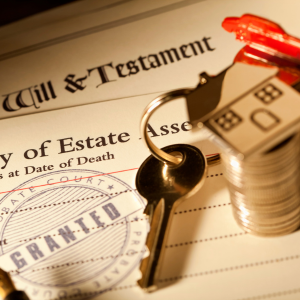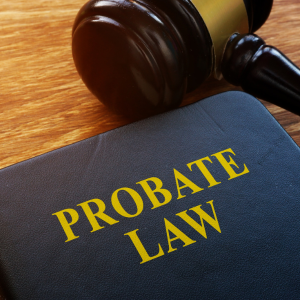
It can be tough to know what to do to sell estate property in Michigan if you are in charge of a will. To carry out the desires of the deceased, executors need to know what their legal rights and responsibilities are. This article talks about the most important things to think about when buying or selling a home. It gives executors helpful knowledge that helps them make good choices. We want to make sure that executors know everything they need to know to conduct their jobs successfully, such as the legislation and any complications that might come up. This is great for the estate’s worth and the people who will get it.
Key Highlights
- In Michigan, the people who manage the estate are called executors. They are in charge of managing the estate’s assets and dividing them up. The law and the estate agreements tell them what to do.
- The estate must acquire authorization from the will or the probate court before it can sell property.
- You have to follow the rules and keep solid records when you sell property in probate.
- Executors may have to deal with problems including heirs fighting, the market changing, and making sure that property prices are reasonable.
- You need to keep an eye on your money and develop a budget if you want to keep estate and probate charges minimal.
What an Executor Does in Michigan
The executor, also called the personal representative, is in charge of administering and dividing up the estate’s assets in Michigan. They not only offer people gifts. The executors have to pay bills and taxes, take care of the property, and make sure that all choices are in line with Michigan probate law and what the dead wanted.
There are rules that executors must follow when they manage estates, like how to sell property. If the will doesn’t say who is in charge, the probate court must. To avoid legal complications and take care of the estate properly, you need to know the limits of this jurisdiction. This page explains what an executor does, how they can legally sell property, and the best ways to manage the assets of an estate.
What the Executor Has to Do

In Michigan, an executor has a lot of hard and time-consuming tasks that require a lot of work, good organization, and a full understanding of the law. Like personal representatives, executors start by discovering and securing the estate’s assets, which could be property. This step is very crucial to protect the estate from loss or damage while the probate process is going on.
Executors are also responsible for paying off debts and letting creditors know about them. This includes paying off debts like bills, mortgages, and other obligations that can have a big impact on the estate’s overall financial condition. Another key thing to do is pay your taxes. This means sending in the deceased person’s last tax return and paying any estate taxes that are owed.
You should also know how much the estate’s property is worth. Executors should make sure that the value of money, property, and other important assets is correct. This knowledge helps people split up property equitably and eliminates fights. You should constantly speak to the beneficiaries in a clear and forthright manner. This will make sure that everything is fair and that the person’s wishes are followed.
They will also advise the individuals in charge of the estate how to split it up. In Michigan, if someone dies without a will, they must follow the guidelines for what to do. They should be ready to handle any claims or issues with the estate and, if required, keep it safe. Probate procedures can be hard to grasp; therefore, many executors work closely with lawyers to make sure they do their jobs fairly and well, follow the law, and keep the estate safe.
Executor’s Right to Sell Estate Property
One of the most important things an executor does is choose when and how to sell the estate’s assets. The will basically says who has this power in Michigan. If the will clearly says that the executor can sell property, the deal can go through without any more legal action. This can help you sell things quickly, which is important if you need money right away to pay bills or get rid of your things.
If the will doesn’t provide them this power, they need to go to probate court. The petition must say why selling the property is the best thing for the estate. Executives typically get in touch with real estate agents and appraisers to find out how much a property is worth on the open market and to make sure the sale is legal and fair.
They may hesitate to sell the property if it holds significant sentimental value for the beneficiaries. Executors must carefully identify these concerns and use strong communication and negotiation skills to ensure everyone’s needs are considered while still meeting their fiduciary duties. By following Michigan’s probate guidelines and collaborating closely with legal professionals, executors can preserve the estate’s value and ensure property sales — including efforts to sell your house fast in Michigan — proceed smoothly and successfully.
Can you sell a house that is in probate?
You can sell a house in Michigan while it is in probate, but you have to follow a precise legal process. As personal agents, executors must make sure that the agreement respects state probate law. If the deceased person’s will says that the property can be sold, it can be sold. If not, a court may have to authorize the sale.
You should know the regulations and laws that apply to probate sales. To keep things simple, executors should keep track of everything they do and know when they need to go to court. This makes sure that the plan is good for the estate and what the person who died intended. It also makes it less likely that you will break the law.
Things to think about when going through Michigan probate
When executors sell property in Michigan, they have to follow the rules. If the will clearly says that the property can be sold, the executor can move ahead with the sale without asking the court for authorization. The executor must apply to the probate court to acquire permission to sell if it’s not obvious who has the right to do so and establish that the sale is essential to administer the estate properly.
One important part of this process is making sure that any sale of property is lawful and will make money. When making judgments about an estate, executors need to think about the estate taxes, the fair market value, and any debts that are already due. Make sure the deal is lawful and fair by talking to appraisers and lawyers.
It’s also very vital to be honest with the folks who get the gifts. Executors should keep everyone informed about the sale, explain their choices, and show that the transaction is good for the estate. This makes it less likely that fights will happen and helps the executor and beneficiaries trust one another more. By following the law, executors protect the estate’s assets and execute their jobs as fiduciaries.
It could be hard to sell property that is in probate

Selling a house while it is in probate can be complicated, and executors may have to deal with a lot of different problems. The fact that the courts are engaged is one of the scariest things. It could take a long time to get permission, which could slow down the deal.
Executors also need to help creditors and beneficiaries with their difficulties. People can debate about how much the property is worth, protest the sale, or not believe the executor’s choice. It’s better to talk things over and work them out before they get worse. If there are legal concerns, things might take longer and cost more.
The market is also very essential. You might have to sell your house at the right time to obtain the most money for it. So, keep an eye on the real estate market. You can be confident that the price and marketing of the home are right when you engage a real estate agent.
It’s hard to sell because of how feelings work. People who will benefit from the property may feel strongly about it or dispute whether or not to sell it. The executors also need to keep an eye on the estate’s money while they accomplish this. If you are honest, kind, and keep everyone up to date, things will run more easily and there will be fewer problems.
People responsible for managing an estate can prepare for these situations by ensuring all legal and financial matters are properly organized, reducing the likelihood of complications. By working with qualified real estate agents, appraisers, and attorneys — especially from services like ours, since we buy houses in Northville — you can feel confident that the deceased’s wishes are honored and all legal and financial obligations are fully addressed.
How to Sell a House in Michigan When It’s in Probate
If you want to sell a house in Michigan that is in probate, you need to know what you need to do and make a plan. This is what the people in authority do. They follow the laws of probate law, get the proper approvals, and keep in touch with the persons who will benefit.
How to Get Through the Process of Selling a Will
- Check Authority: The executor must make sure that the will gives them the right to sell the property. If not, you will have to file a petition in probate court.
- Get a Quote: Professional appraisals make sure the property is worth what it is, which makes arguments less likely.
- Get the Property Ready: Buyers may be more interested in it if you fix it up or make it look better.
- Advertise the Property: Use a variety of methods to capture buyers’ attention and get the best deals.
- Be Honest: Let other people know about changes and decisions so they don’t get confused.
- Look Over the Contracts: You can be sure that all of the contracts are legal and good for the estate by working with lawyers.
- Finish the Sale: Make sure the closing goes well, the title is transferred, and the money is distributed out as the estate planned.
Getting the Right Paperwork and Approvals

Executors need to get the right documentation to prove that what they did was legal. The probate court sent you letters that let you handle the estate’s money. If the will doesn’t say that the sale is okay, you need to seek the court’s permission.
Executors should keep accurate records of all debts, assets, and responsibilities. It is crucial to keep track of everything and use assessment reports to create fair rates. If you choose good probate lawyers, you can be confident that all the legal requirements are met and any complications that come up are dealt with.
Here are some important things to do:
- You must get authorization from the probate court before you may sell a house.
- Make a complete list of all your belongings and put a price on each one.
- Keep very careful records of every sale.
- Follow the rules of the city and state.
- Keep in touch with those who win.
- Get help from professionals.
- Take care of any claims filed against the estate.
These steps assist in making sure that the probate sale goes off without a hitch and satisfies the rules of fiduciary obligation.
Things You Can Do to Lower the Cost of Michigan Probate
The greatest way to keep the cost of probate minimal is to plan beforehand. Executors are in charge of the estate’s money, legal issues, and other administrative activities to protect its worth. You should know how much your mortgage payments are, plan your bills, and talk to a lawyer for help.
Considering the estate’s expenses and costs:
Executors should put down all the possible costs, such as court filing fees, attorney fees, property maintenance charges, and mortgage payments. Budgeting ahead of time makes sure that the estate is settled quickly and that costs don’t arise out of nowhere. The probate court and the people who will collect your money will be glad if you maintain your records correctly and check your money often.
In the End
If you’re an executor in Michigan looking to sell property, it’s essential to proceed carefully, plan ahead, and communicate clearly. Executors must understand how the probate process works, secure the necessary approvals, and properly manage the estate’s real estate. By following the right steps, you can protect the estate’s value, ensure a fair distribution of assets, and carry out your responsibilities more efficiently. Working with a professional—such as a probate attorney—can also help you navigate complex issues and keep the transaction running smoothly. And if you need a fast, hassle-free option, Blue Moon Acquisitions buys houses for cash in any situation, making the process even easier. Contact us today!
FAQs
What are the most important things that an executor in Michigan has to do?
Executors are in charge of managing and distributing the deceased person’s property according to Michigan probate law and the person’s preferences. This includes making payments, keeping assets safe, dealing with taxes, talking to beneficiaries, and figuring out how much property is worth.
When can an executor in Michigan sell property in an estate?
If the will specifies they can, executors can sell property. If the deal isn’t good for the estate, the court has to give its permission.
What do you need to do in Michigan to legally sell a house that is in probate?
The will or the court is the only thing that the executors can do. They need to figure out how much the property is worth, pay their taxes, and follow Michigan’s rules for probate.
What paperwork do you need to fill out in Michigan to sell a house that is in probate?
Letters of authority, property evaluations, a full inventory, and court approvals, if needed, are all very important.
What can Michigan executors do to keep the expense of probate down?
Executors should make a thorough plan for how to pay for things like the mortgage, court and lawyer fees, and keeping the property in good order. They should also hire a probate lawyer to help them maintain track of their money.
Useful Michigan Blog Articles
- Delinquent HOA Dues in Michigan
- How To Successfully Sell Your Michigan Home With A Reverse Mortgage
- Can Medical Bills Force The Sale Of Your Home In Michigan?
- Selling Parents’ House After Death in Michigan
- Earnest Money Rules in Michigan
- Condemned House Requirements in Michigan
- How to Sell an Investment Property in Michigan
- Tax Implications of Selling Home in Michigan
- How to Avoid Closing Costs in Michigan
- How to Sell a Condemned House in Michigan
- Selling a Home to Pay Off Debt in Michigan
- Can Executor Of Will Sell Property in Michigan
- Can You Sell A House As Is Without Inspection in Michigan
- Selling A House To A Family Member in Michigan

